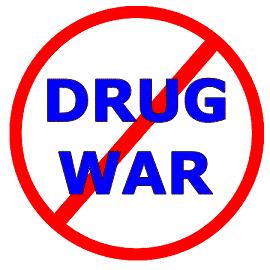 “Over the past 50 years international drug treaties have neither prevented the globalization of the illicit production and non-medical use of (illicit) drugs”
“Over the past 50 years international drug treaties have neither prevented the globalization of the illicit production and non-medical use of (illicit) drugs”
An estimated 11 percent of North Americans between the ages of 15 and 64 consume marijuana yearly, according to a research report published in the January 7th edition of the scientific journal The Lancet.
Researchers from the University of Queensland and the University of Melbourne in Australia assessed the global extent of illicit drug use and its impact on health. Authors reported that an estimated 10.7 percent of North Americans consume cannabis annually. By contrast, fewer than five percent of the global population were estimated to have used marijuana in the previous year.
Australians reported the highest levels of cannabis use, according to the study.
Regarding the impact of illicit drug use on health, researchers wrote, “On the basis of available evidence, most of the disease burden attributable to illicit drugs is concentrated in problem or dependent drug users, especially people who inject drugs.”
Authors recognized, however, that only “a minority of individuals who use illicit drugs become dependent on or inject them” and acknowledged “[T]he risks of cannabis use are much smaller than those of other illicit drugs.”
They concluded, “In high-income countries, the contribution of illicit drugs to burden of disease is less than that of tobacco, but may be similar to alcohol.”
An editorial accompanying the study opined that criminal drug prohibition has failed to reduce illicit drug availability and has not positively contributed to global health outcomes, stating: “Over the past 50 years international drug treaties have neither prevented the globalization of the illicit production and non-medical use of these drugs, nor, outside of developed countries, made these drugs adequately available for medical use. The system has also arguably worsened the human health and well-being of drug users by increasing the number of drug users imprisoned, discouraging effective countermeasures to the spread of HIV by injecting drug users, and creating an environment conducive to the violation of drug users’ human rights.”
It concluded: “National experimentation in approaches to prevention and reduction of drug-related harm should be allowed. The international drug treaties in their present form seriously constrain governments’ capacities to engage in such policy experiments. … Countries that wish to experiment with different ways of regulating drug use and reducing drug-related harm will need to consider opting out of provisions of the existing drug control treaties. … From the perspective of public health, we need to move towards a control system that is more aligned with the risks that different drugs pose to users and shows an understanding of the effects of different regulatory approaches on drug use and harm.”
Both papers are available online at: https://www.thelancet.com.
For more information, please contact Paul Armentano, NORML Deputy Director, at: [email protected].






